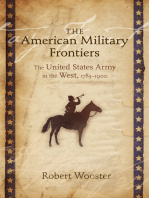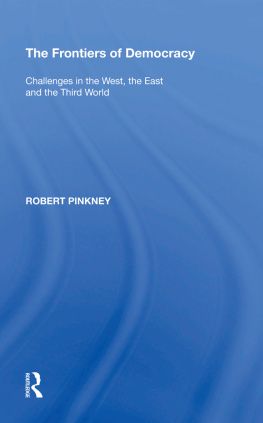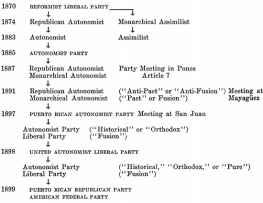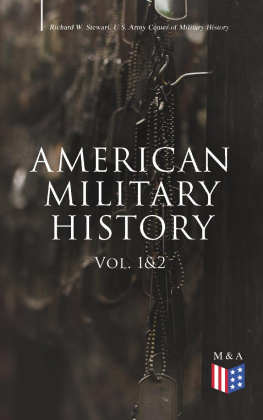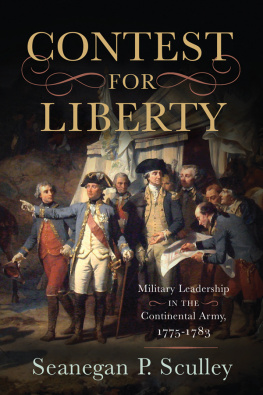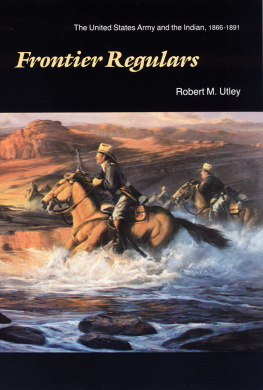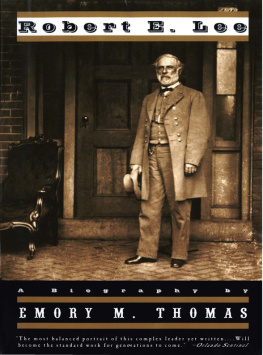Robert Wooster - The American Military Frontiers: The United States Army in the West, 1783-1900
Here you can read online Robert Wooster - The American Military Frontiers: The United States Army in the West, 1783-1900 full text of the book (entire story) in english for free. Download pdf and epub, get meaning, cover and reviews about this ebook. year: 2009, publisher: University of New Mexico Press, genre: History / Science. Description of the work, (preface) as well as reviews are available. Best literature library LitArk.com created for fans of good reading and offers a wide selection of genres:
Romance novel
Science fiction
Adventure
Detective
Science
History
Home and family
Prose
Art
Politics
Computer
Non-fiction
Religion
Business
Children
Humor
Choose a favorite category and find really read worthwhile books. Enjoy immersion in the world of imagination, feel the emotions of the characters or learn something new for yourself, make an fascinating discovery.
- Book:The American Military Frontiers: The United States Army in the West, 1783-1900
- Author:
- Publisher:University of New Mexico Press
- Genre:
- Year:2009
- Rating:3 / 5
- Favourites:Add to favourites
- Your mark:
- 60
- 1
- 2
- 3
- 4
- 5
The American Military Frontiers: The United States Army in the West, 1783-1900: summary, description and annotation
We offer to read an annotation, description, summary or preface (depends on what the author of the book "The American Military Frontiers: The United States Army in the West, 1783-1900" wrote himself). If you haven't found the necessary information about the book — write in the comments, we will try to find it.
Robert Wooster: author's other books
Who wrote The American Military Frontiers: The United States Army in the West, 1783-1900? Find out the surname, the name of the author of the book and a list of all author's works by series.
The American Military Frontiers: The United States Army in the West, 1783-1900 — read online for free the complete book (whole text) full work
Below is the text of the book, divided by pages. System saving the place of the last page read, allows you to conveniently read the book "The American Military Frontiers: The United States Army in the West, 1783-1900" online for free, without having to search again every time where you left off. Put a bookmark, and you can go to the page where you finished reading at any time.
Font size:
Interval:
Bookmark:
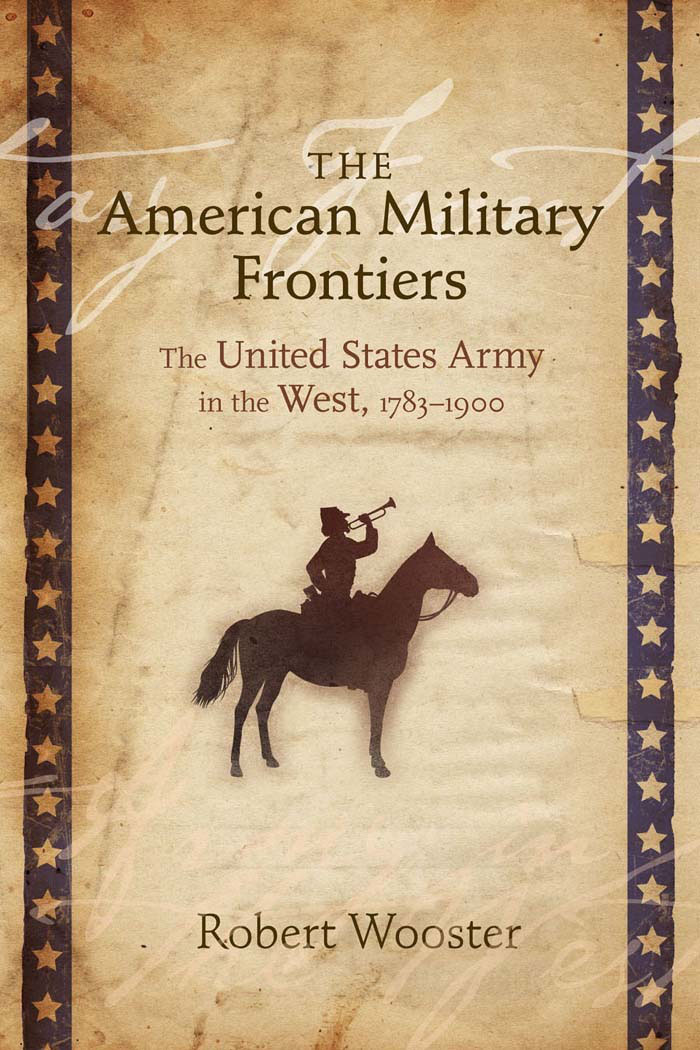

HISTORIES OF THE AMERICAN FRONTIER
Editor:
HOWARD LAMAR, Yale University
Coeditors:
WILLIAM CRONON, University of Wisconsin
MARTHA A. SANDWEISS, Amherst College
DAVID J. WEBER, Southern Methodist University

THE American Military Frontiers 
THE UNITED STATES ARMY IN THE WEST, 17831900
Robert Wooster
UNIVERSITY OF NEW MEXICO PRESS ALBUQUERQUE
ISBN for this digital edition: 978-0-8263-3845-7
2009 by the University of New Mexico Press
All rights reserved. Published 2009
Printed in the United States of America
First paperbound printing, 2012
Paperbound ISBN: 978-0-8263-3844-0
18 17 16 15 14 13 12 1 2 3 4 5 6 7
THE LIBRARY OF CONGRESS HAS CATALOGED THE PRINTED EDITION AS FOLLOWS:
Wooster, Robert, 1956
The American military frontiers : the United States Army in the West, 17831900 / Robert Wooster.
p. cm.
Includes bibliographical references and index.
ISBN 978-0-8263-3843-3 (cloth : alk. paper)
1. West (U.S.)History, Military19th century.
2. United States. ArmyHistory19th century.
3. United States. ArmyMilitary lifeHistory19th century.
4. United StatesTerritorial expansionHistory19th century.
5. Frontier and pioneer lifeWest (U.S.)
I. Title.
F592.W865 2009
355.0097809034dc22
2009021263

MAPS
To give protection to the citizens of the frontier against the Indians and to guard the long line of our Mexican border against robberies by Mexican citizens and Indians living in Mexico, wrote Major General Philip Sheridan in his 1873 annual report for his Division of the Missouri. Recording the many activities of the soldiers of his command, he continued, To explore unknown territory and furnish escorts to surveying parties for scientific purposes and for projected railroads; to assist and guard the railways already built and other commercial lines of travel; to aid in the enforcement of the civil law in remote places; and to do generally all that is constantly required of our Army in the way of helping and urging forward everything which tends to develop and increase civilization upon the border, and at the same time to protect the Indians in the rights and immunities guaranteed them under existing treaties, has been the work of the troops in this military division.
Such was a professional soldiers account of the armys activities for a single year in the borderlands. Modern scholars rightly shy away from using pejorative phrases like the advance of civilization to describe the expansion of the United States from the Appalachian Mountains to the Pacific Ocean. Nor do we share Sheridans assumptions that development equaled progress or that his countrys actions were inherently better than those of other peoples. Nonetheless, he accurately described the armys multiple duties in advancing and defending what the United States defined as its national interests.
The present work argues that military affairs, in their varied dimensions, were of fundamental importance to the American frontiers and that the United States Army, as the federal governments most visible agent of empire, was central to that experience. Designed to complement earlier works in the Histories of the American Frontier series, it seeks to create a narrative synthesis that appeals to scholars as well as a broader literate audience and that both reflects and shapes our understanding of the role of the U.S. Army in the expansion of the nation. Although focusing on the army, the narrative remains multifaceted, for there were many sides to these military frontiers. Indianssome of whom fought alongside the army, more of whom fought against the army, and all of whom naturally sought to manipulate martial conditions in a manner that would further their own interestsare central to this story. Moreover, men and women of many backgrounds, races, and ethnic groups were part of these military communities, and their actions affected a similarly diverse civilian population. Acknowledging the multiple worldviews of these groups is essential to understanding the frontier military experience.
As a country born in war, the United States would long debate the best means of fashioning military forces suitable to republican government. In drafting the Declaration of Independence, Thomas Jefferson complained that George III had quartered large bodies of armed troops among us, had allowed the army to dominate local civil authority, and was transporting large armies of foreign mercenaries to complete the works of death, desolation and tyranny already begun. Moreover, the British people had permitted the king to send over not only soldiers of our common blood, but Scotch and foreign mercenaries to invade and destroy us. Sam Adams warned that standing armies must be watched with a jealouse Eye; republican theorists thus preferred militias, comprised of able-bodied adult, male property holders.
Wariness about a standing army did not mean that these Americans were pacifists. Responding to the struggle to control the borderlands and reflecting the racism that defined some people as humans and others as something less, colonists had conducted their wars against Indians (much like their cousins in Europe fought political rebels, infidels, or ethnic minorities such as the Irish) with a ferocity and brutality that would have been considered unacceptable in dealing with other enemies. These encounters, along with the competition for the resources necessary to secure weapons and other needed trade goods from the Euro-Americans, also changed the ways that Indians fought their wars, with conflict tending to become both more lethal and more intense.
Despite their misgivings, the Confederation Congress quickly created a small regular army. Serving as the sword of the republic, this force would eventually establish Washingtons authority across the North American continent as it engaged in a series of tasks that encouraged expansion and development among non-Indians. Military roads and river improvements, for instance, involved the borderlands in the communications revolution that historian Daniel Walker Howe has identified as having transformed American life in the first half of the nineteenth century. Similarly, the army was essential in constructing the railroads that did much to create a nation that spanned the enormity of a continent.
Much of this expansion came directly through force of arms. Combat action, whether it pitted the nation against Britain, Mexico, the Confederacy, or Indians, had meaning. Such was particularly the case when it came to the frontiers. Throughout these contested grounds, where virtually all parties recognized organized violence as an acceptable alternative to peace, failures and successes in battle alternately delayed and hastened civilian movement. Such was particularly the case when it came to Indians and non-Indians, neither of whom ever fully comprehended the mysteries of the others worlds. Indeed, historian John Grenier has argued that the first truly American way of war, which featured the destruction of an enemys will and ability to resist through attacks on civilian population centers and economic infrastructure, evolved out of the long colonial and early republic struggles for military supremacy on the frontiers.
Next pageFont size:
Interval:
Bookmark:
Similar books «The American Military Frontiers: The United States Army in the West, 1783-1900»
Look at similar books to The American Military Frontiers: The United States Army in the West, 1783-1900. We have selected literature similar in name and meaning in the hope of providing readers with more options to find new, interesting, not yet read works.
Discussion, reviews of the book The American Military Frontiers: The United States Army in the West, 1783-1900 and just readers' own opinions. Leave your comments, write what you think about the work, its meaning or the main characters. Specify what exactly you liked and what you didn't like, and why you think so.

